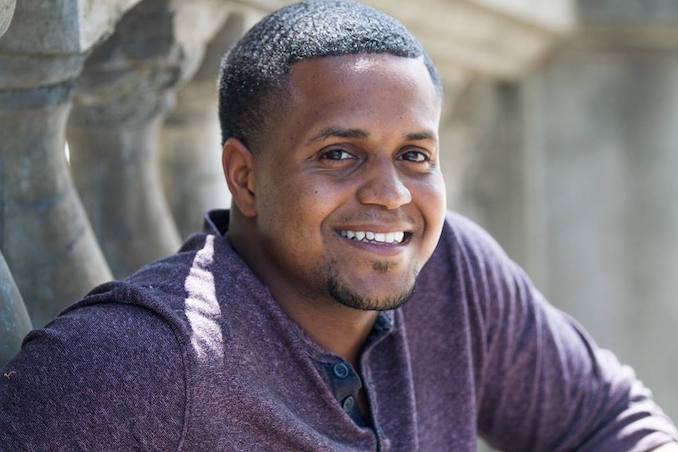In October, I attended the Blueprint for Success Conference hosted by John Burton Advocates for Youth, which brings together professionals who support foster youth in higher education. After a few years of the conference being on hiatus because of the pandemic, we were finally able to convene. It was a joy to see and catch up with colleagues and friends.
When I walked into the Westin hotel lobby to grab dinner with colleagues from Nevada, I immediately saw a former mentor and colleague, Priya Mistry, who works for Pivotal, a program I am an alumnus of. It was nice catching up with her, it felt like no time had passed. Very quickly, I found myself hanging out in the hotel lobby with other folks I knew.

I enjoy going to conferences and attending sessions. However, I find myself more and more spending my time at the lobby, cafe or hotel restaurant catching up with people; after all there is only so much “learning” you can do. The intentional community building in the hotel lobby or in the cafe is just as important as the learning that happens in the conference sessions.
One night, as I was running late to dinner because of the various conversations I was having, I was reminded about the power of community. Famed psychotherapist Esther Perel talks about how the quality of our life is measured in the quality of our relationships. Moreover, she says, our relationships have the power to shape our entire lives. Seeing former students who are now professional colleagues, colleagues who I now consider friends, and longtime friends I consider family, is a beautiful thing. And since we spend more time at our jobs than we do at home, this realization makes me value my professional community more.
This is of special importance for someone like me, who grew up in foster care and does not have much family I can point to. Growing up in foster care, I always felt like I didn’t belong. Among my professional community there is a greater sense of belonging.
I am lucky to be able to work in a larger community of helpers, healers and changemakers. I am able to work with people that I care for, and it is reciprocated — I feel privileged in that regard. This does not mean that these spaces are perfect, far from it, but the time the pandemic took away makes me feel lucky to be surrounded with a professional community that truly cares about people, justice and community.
For those of us who experienced foster care, and might not have the same type of nuclear family and the privileges it often comes with, I tend to rely on my chosen family (friends and mentors). But as I get older it does become more difficult to remain connected. A book I read about a year ago with some friends called “BIG Friendship” discusses what it means to create and maintain meaningful relationships, and one of the chapters is called “Stretch.” This chapter highlights how friendships take work, and as they evolve you have to stretch, reach and work harder to maintain those connections.
True community takes work. It also provides a sense of psychological safety, a space where you can be yourself, and as I get older, I find this to be incredibly valuable. It makes me want to stretch that much more to maintain the communities that I have. Foster care has a way of taking away community and meaningful relationships — to me building and maintaining community is an act of resistance. My longtime mentor Dr. Kizzy Lopez reminded me at the Blueprint Conference, it is also our responsibility to create affirming and safe spaces for the young people coming after us, this is important as we continue to build and organize toward justice.
If there is any advice I would give young people, especially those who have experienced foster care, I would say the way you move through the world will often define not just how far you go but where you go. And who you bring with you, the community that you form, can have the ability to enhance the quality of your journey.
My friends and chosen family have gotten me through tough times. They have also been there to celebrate good times too. Many of the folks I was able to reconnect with at the Blueprint Conference have been a lighthouse in the storm for me. I am forever grateful to have many of them as I navigate my journey.
Other news outlets don’t cover child welfare and juvenile justice like we do.
News for people, not for profit.





